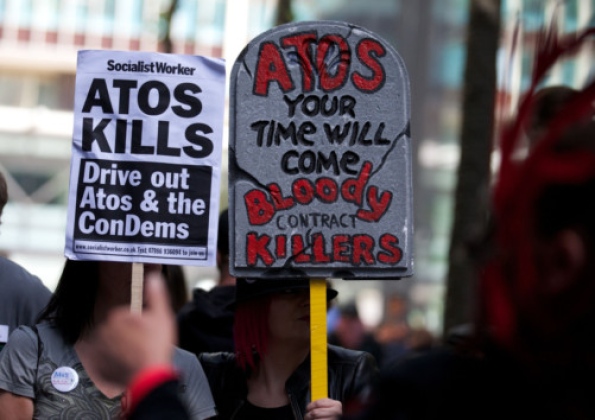
Campaigners say the Paralympics Games are being used to justify benefit cuts (Getty)
By EDDIE BARNES
Published on Sunday 2 September 2012 00:27
DISABLED groups have accused Prime Minister David Cameron of using the Paralympics as “propaganda” to excuse welfare cuts that will strip 72,000 people in Scotland of disability benefits.
Campaigners claimed that the achievements of Paralympians were being used by ministers to show that disabled people could get by without welfare support.
The move comes ahead of the planned roll-out of welfare reforms next year which, campaigners say, will mean around one in three disabled people of working age in Scotland receiving benefit will no longer get a penny.
Campaigner John McArdle said: “These games are being used as propaganda to justify unconscionable cuts to disabled people’s benefits.”
Meanwhile, councils said last night it was “outrageous” that, with just months to go until the reforms are introduced, they still did not know how they will be implemented.
The current disability allowance gives people between £20.55 and £131 a week to help with the cost of care and mobility. But from April, ministers plan to scrap Disability Living Allowance and replace it with Personal Independence Payments. In Scotland, the plans are likely to cut £270m from the benefit bill. Tests for eligibility will be carried out by Atos Healthcare, a sponsor of the Paralympics, which has already been criticised for its handling of incapacity benefit assessments. Disability campaigners say those most likely to lose out are “lower rate care recipients” including people with learning difficulties.
The umbrella group Inclusion Scotland says Department for Work and Pension estimates show 60,000 people of working age will lose all funding for their help at home and 12,000 will lose all support for mobility. Pensioners are exempt from the cuts.
Local government chiefs and disability groups met in Edinburgh last week to consider the impact of the reforms, but say they remain in the dark about how best to plan for the changes. “The target from Whitehall is to deliver up to a 20 per cent efficiency from the DLA budget. This could increase demand for council services and push some disabled people into poverty,” said Peter Johnston, Cosla’s health and well-being spokesman.
However, a Department for Work and Pensions spokesman said: Under PIP support will be focused on those who need it most.”


No responses yet